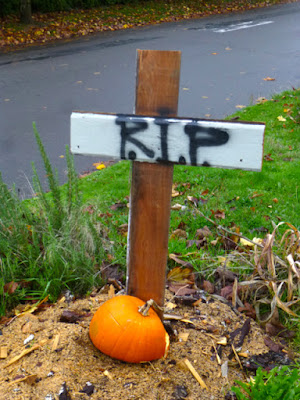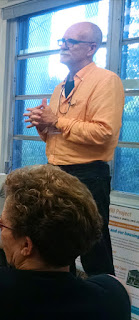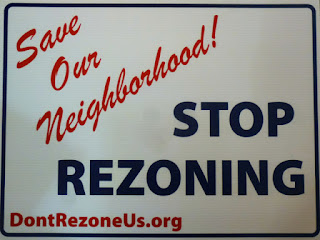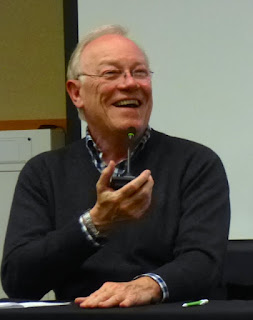 |
| Portland prescient: If only all neighbors knew what planners have in mind for the city's future. RIP city indeed. |
 |
| The city's Joe Zehnder says the RIP proposal won't help with affordability. |
It's still true, as Portland's chief planner, Joe Zehnder, said at an East Portland open house in July, that the proposal won't help with affordability. Again: According to its own drafters, this proposal will not help with affordability. The frustration out there for tenants and homeowners alike looking to gain or maintain a foothold in the market is real, and the last several years of record numbers of teardowns has made the situation worse. The market has never built affordable housing on its own accord, and it never will. We would have seen some by now.
 |
| A sign of the times shows the proposed "overlay" for what it is. |
Granted, the RIP isn't an all-out failure. It got people talking, and invested, in our city's future. Far more people now know about FAR (Floor Area Ratio). Many more people are alerted to the potential changes afoot. Ultimately, it showed the prevailing winds among our leadership and city staff. And it certainly showed the need to ask that the concerns and well-being of local stakeholders and residents take priority over short-term and usually out-of-town profiteers. More of the same years of record-breaking demolitions won't give us needed affordable housing (especially while erasing it from our neighborhoods); why should we give the nod to more?
air and Earth are dusted with lead and asbestos. The wholesale loss of mostly modestly sized and affordable homes must stop, and the neighbors and environment protected from irreversible effects of uncontrolled hazmat.
This Halloween, let RIP RIP (rest in peace), and leave the pro-demolition forces behind as we craft a safer, more sustainable city.

